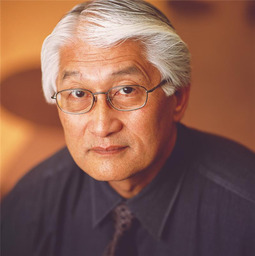Is Hydrogen the Secret Weapon to a Greener Future?


As part of Hitachi’s multipronged mission to contribute to the decarbonization of society, and as stated in Hitachi’s 2022 Sustainability Report, the company is committed developing high efficiency products, energy management systems, and…hydrogen-related technologies.
Hydrogen? Although electric vehicles are gaining momentum due in large part to declining costs and widening availability of distribution networks, hydrogen fuel cells are making serious inroads in fleet operations where the faster recharging rates are important. In fact, for large capacity, long haul vehicles like trucks, busses, trains, ships, planes and even space crafts, where the higher costs of Hydrogen can be better distributed without the weight of the batteries.
That’s because Hydrogen is not an energy source; it’s an energy carrier like electricity. And while there are no natural sources of hydrogen, no hydrogen mines or hydrogen wells, it is the most plentiful element in the universe. It’s also renewable by separating it from water, hydrocarbons, or biomasses.
That said, like electricity, hydrogen must be manufactured, transported, distributed, and stored, and that is where the costs come in. The challenges are not only technical, but also social and economic. So, the question becomes, how do you create a viable ecosystem for the use of hydrogen power?
The first challenge is developing a process for carbon-free manufacturing. Currently 95% of hydrogen is generated using natural gas through a process called “steam-reforming.” Through steam-reforming, hydrogen is split from the natural gas, but the resulting hydrogen is “gray” and not considered an effective climate solution due to the amount of CO2 produced as a byproduct.
However, it is possible to conduct steam-reforming and capture and sequester the CO2 to produce “blue” hydrogen. The downside is that it adds about 30% to the overall cost. The oil and gas sector, in particular, Shell, BP, and Repsol, are interested in the blue hydrogen approach because they view it as a way to preserve the value of their natural gas assets.
For its part, Hitachi is working on carbon-free, or “green” approaches to hydrogen generation. In one program, the company is developing an artificial photosynthesis process that’s capable of manufacturing “clean fuels directly from water, air, and sunlight.” According to the research, “the artificial photosynthesis reaction involves producing “solar hydrogen” by electrolysis using a photocatalyst and photoelectrode, with solar fuels being a promising technology because of their ability to be produced using simple apparatus.”
As part of its work in hydrogen, Hitachi is also aiming to create two systems to enable the construction of a hydrogen multi-resource platform that will ensure profitability for renewable energy providers and hydrogen supply chain businesses. One is a low-cost hydrogen production system using power from renewable energy. The other is a low-cost hydrogen-based co-generation system for users such as cities and mobility providers.
But it’s not all behind the scenes work. Hitachi has joined with Toyota and installed a hydrogen-powered train in Japan where it has been undergoing tests since February of last year. In the UK, Hitachi is developing battery powered trains that can switch seamlessly from overhead power to on board batteries and diesel. In the longer term, the plan is to incorporate hydrogen power fuel cells, based on their work in Japan with Toyota. Even further down the line they are looking at Hyperloop technology which has the potential to travel faster than passenger airplanes, connecting cities in unthinkable times without CO2 emissions.
All of this adds to the tapestry of commitment by Hitachi to contribute to the creation and realization of an environmentally neutral society and beyond, to a carbon-negative one.
Hu Yoshida is CTO Emeritus, Hitachi Vantara.

Hu Yoshida spent 24 years at Hitachi Vantara helping define technical direction and enabling customers to address their digital transformation needs. He is widely known in the industry and was instrumental in evangelizing Hitachi's unique approach to storage virtualization.